Meet the 2.5 Percent: Philly’s Black Business Owners in Beauty, Health and Wellness
In Philly, where only 2.5 percent of businesses are Black-owned, these entrepreneurs have overcome more obstacles than most. Then came the pandemic, which drew a stark line between essential and non-essential businesses.
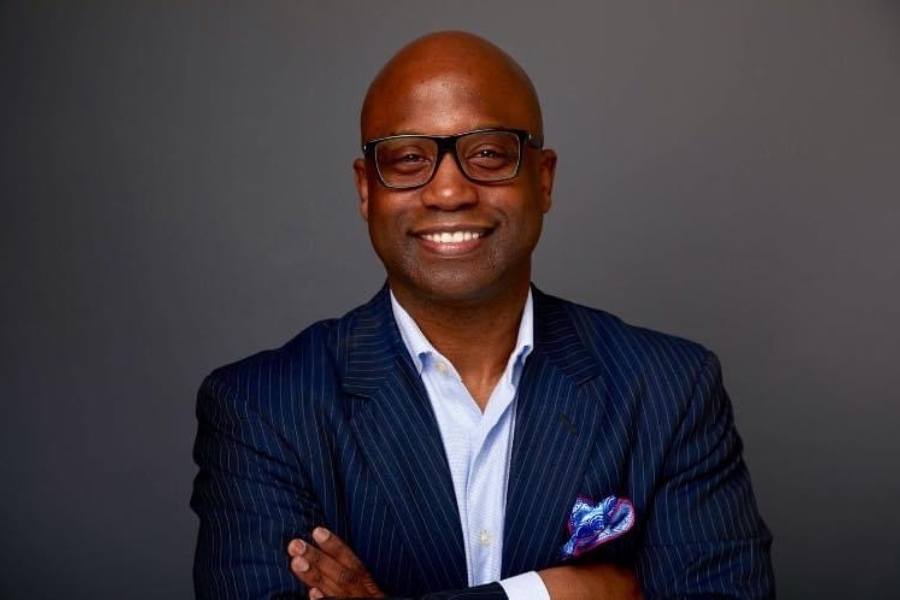
Get to know Philly’s Black business owners, including Steve Davis, the co-owner of Omega Optical located at 3212 West Cheltenham Avenue. / Courtesy
“Meet the 2.5 Percent” is a bi-weekly series that features stories from entrepreneurs and business owners working to recover from COVID-19, as well as damage and looting during Philly’s civil unrest. If you are a Black business owner and would like to share your story, please email qmuse@phillymag.com.
Many people consider beauty, wellness and certainly health services as essential. But when the coronavirus pandemic arrived in Philadelphia in mid-March, city and state officials created their own detailed lists that separated businesses they deemed as essential and were therefore allowed to remain open, and businesses they considered to be non-essential, that were forced to close. This put businesses that offer everything from skincare and make-up services to routine eye exams on an indefinite pause; a pause that undoubtedly hurt Black-owned businesses more severely than other groups of entrepreneurs. A recent report by the National Bureau of Economic Research found that 41 percent of Black-owned businesses have been shuttered due to the pandemic, compared to just 17 percent of white-owned businesses.
These Philly-based businesses in beauty, health and wellness have managed to survive but not without facing some significant challenges. They represent the mere 2.5 percent of businesses in Philadelphia that are Black-owned. Every other week, we’re highlighting members of Philly’s Black-owned business community so you can get to know and support them.
Omega Optical
3212 West Cheltenham Avenue
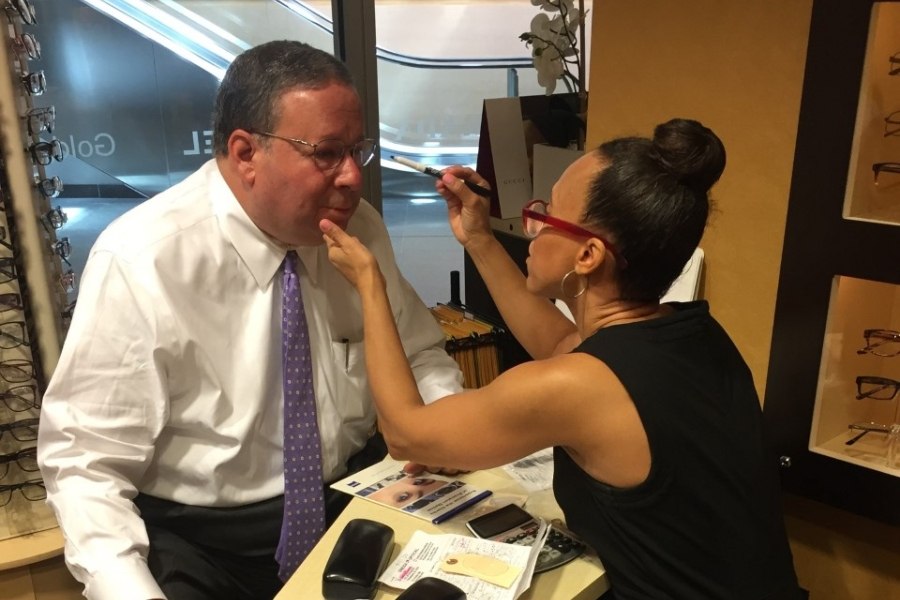
Tracy Davis, co-owner of Omega Optical, assisting a client. / Courtesy
Steve Davis, 47, always wanted to establish a business that would someday become an asset to the Cheltenham Mall he enjoyed exploring in his youth. During his college years, he went from studying to become a dentist to training to become an optometrist before he realized his true passion was drawing him to become an entrepreneur.
“I realized I could help more people on the business side of optometry,” Steve Davis said, noting that his decision was also driven by the fact that, at the time, Philadelphia had very few healthcare businesses that were owned and operated by Black people.
In June 2000, Davis and his wife, Tracy, opened Omega Optical, a vision-care service that provides eye exams, contact lenses, prescription eyeglasses and more in Cheltenham Mall. The Davises hired all of their employees from the surrounding community and began participating in educational workshops at local community events and churches to encourage their Black customers to pay better attention to their eye health.
“Our community tends to wait until something is an emergency room issue before we take care of it,” Steve Davis said. “So, for us, it’s not just about selling glasses and doing exams; it’s really about promoting preventative healthcare overall. The eyes are the window to the soul and to the body as well. So, we spend a lot of time with our patients checking for things like high blood pressure, glaucoma or cataracts, and once we see them for eye care, we encourage them to also see their primary care physician.”
In June 2009, the Davises opened a second location in the Comcast Center to provide a more convenient location for customers who lived in South Philly and Center City. For a while, Omega Optical was the only Black-owned business in the Comcast Center, and business was thriving.
When the pandemic hit, the Comcast Center building, including the Omega Optical location there were closed indefinitely. The Davis’s Cheltenham location was also forced to close because it was deemed a non-essential business. The Cheltenham location has since reopened for limited business by appointment to adhere to COVID-19 safety guidelines for social distancing. The Davises also had to obtain personal protective equipment (PPE) for employees, and plastic shields and dividers for their store, expenses that only add to the company’s mounting deficits. (You can support the Omega Optical by making a donation here).
“It’s been difficult. Most of our vendors were shut down completely, so we had to let everyone know we were open, but shipments were delayed. We’d sometimes only have an hour to get into the Comcast building and check voicemails or get things that we needed. It was a major pivot for us; we had to improvise, adapt and overcome,” Steve Davis said. “We’re probably seeing about 50 percent fewer folks than we would normally see. That’s been a major loss of money for us, but we’re committed. We’re surviving the best way that we can.”
Feng Shui Naturals
Various locations
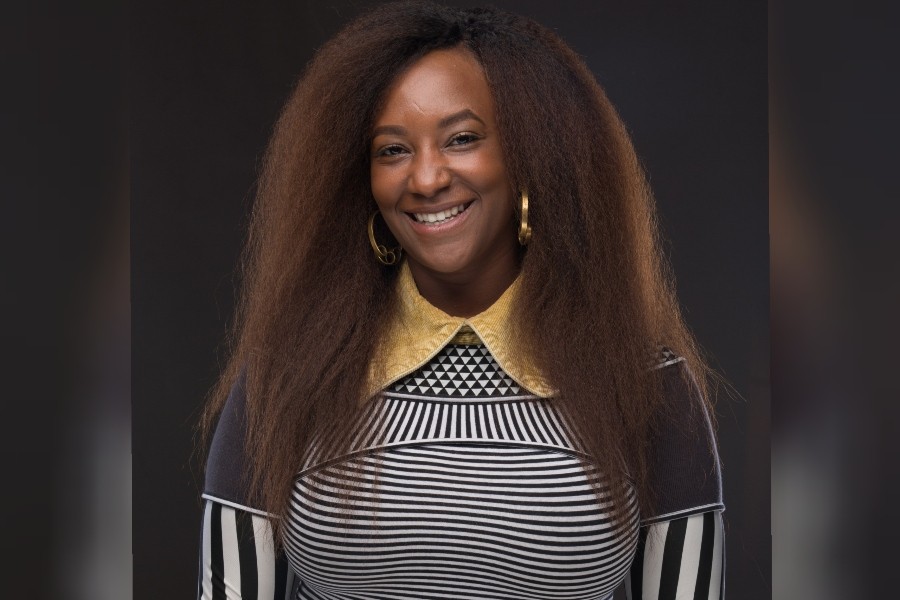
Abenaa Timazee is the owner of Feng Shui Naturals. / Courtesy
As a cosmetologist and natural hair specialist, Abenaa Johnson Timazee, 40, has always aimed to help people become more knowledgeable about the ingredients in the products they put on their skin and scalp, and how those ingredients affect their bodies. She also noticed that very few products on the market provided relief for clients who suffered from severe dermatitis, a condition that causes the skin to become itchy, dry or inflamed.
“Haircare has always been my first priority over hair styling. I was determined to help my clients,” she said.
In 2007, Timazee launched Feng Shui Naturals, a wellness company that offers natural products for skin and hair.
“While many entrepreneurs get access to lines of credit or start-up capital, these resources were not available to me. I started my company with $1,000 of my own money. I’ve bootstrapped from the beginning,” she said. “Despite these challenges, I’ve found a way to leverage my savings, hard work and grace to build and grow my business.”
Timazee’s products are handcrafted in Philadelphia using all-natural, plant-based ingredients. Her products are sold in Whole Foods and Kimberton Markets throughout the region.
Despite her products being sold in stores that were deemed essential and remained open throughout the pandemic, COVID-19 has still created obstacles for Timazee’s business. Weeks of mandatory quarantines prevented many of her regular customers from going out to stores that distribute her products and high unemployment rates forced others to limit their shopping to the bare essentials, making the purchase of hair and skincare products feel more like a luxury than a necessity. (You can support Feng Shui Naturals by purchasing products online here).
To make up for the unexpected drop in sales she’s seen over the past few months, in August, Timazee launched a longtime project in the making: a zero-emission, battery-operated, eco-friendly truck that she’ll use to travel throughout the city and continue spreading awareness of the benefits of her natural products.
“I came up with the idea of the truck two years ago, but it wasn’t until the lockdown that I revisited the idea and decided to launch it this summer. I needed a way to promote the Feng Shui Naturals brand as well as expand my distribution channels. The truck will fulfill both needs,” she said. “We’re also in a climate where people are practicing social distancing but still want to shop. The truck will afford consumers an avenue to shop safely in addition to supporting a local business that is health-conscious.”
Fit Girl Army
2301 North 9th Street
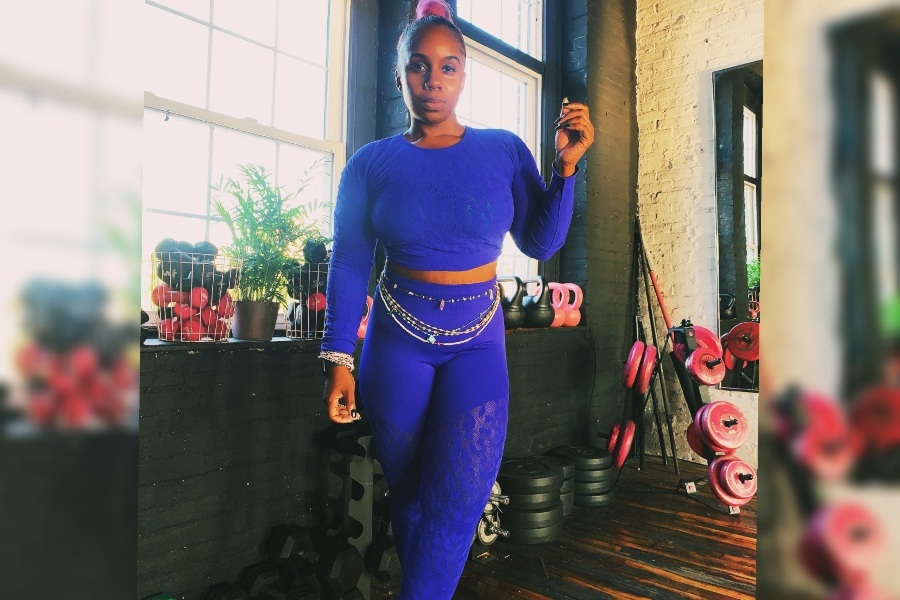
Latoya Izzard is the owner of Fit Girl Army studio, located at 2301 North 9th Street. / Courtesy
North Philadelphia native Latoya Izzard’s business was born from personal experience. For years, she’d invested in every diet and exercise program she could find in an attempt to lose weight and lead a healthier lifestyle, to no avail. Then, at five-feet-two-inches tall and over 200 pounds, Izzard decided to take measures into her own hands and invest in herself.
In 2012, she started an online community through which she would share her fitness struggles and engage people in weight loss challenges. Izzard eventually lost more than 50 pounds using a special exercise method she developed herself. She later published an e-book detailing how she’d lost the weight and kept it off.
“It was just a way to document my fitness journey and find other people who had a love for fitness, since my friends, at the time, were not really into it,” Izzard said.
Over time, her online community evolved to in-person meetings and training. In 2015, Izzard opened Fit Girl Army studio in north Philadelphia, a private gym that offers fitness training and weight loss guides.
She’d saved money from her job working as an analyst at a corporate defense firm and proceeds from her e-book sales to pay her studio lease up for a year in advance.
“I had no idea if anyone would even come workout with me,” she said. “For a few months, I only had two clients and one of them was my mom.”
She worked through a rough first year with no profit before gaining a regular following of women who joined the gym and maintained long-term memberships. Then, in March when the city closed non-essential businesses, the Fit Girl Army studio, like many other gyms, was not spared.
“It was hard. The first month, I spent a lot of days crying,” she said.
“I’d prayed for a purpose many years ago and God showed me it was to help other women the way I had helped myself. So, not waking up every morning to see the women I train felt like I didn’t have a purpose anymore. It was around the second month that the realization of money not being made set it. That was another set of emotions I had to deal with.”
As of August, Izzard says she’s slowly begun accepting memberships but, “the business itself is still stuck in March; our lease and our bills did not stop during those months.” (You can support Fit Girl Army by purchasing products or memberships here or by making a donation here).
Izzard remains determined to continue using her gym to help women become better versions of themselves.
“It’s my purpose. It’s what I prayed for. It’s not just a gym, it’s an ‘army’ of women who are not only there to make themselves better, but also to encourage their fellow sisters in fitness.”
Embellish Beauty
Online
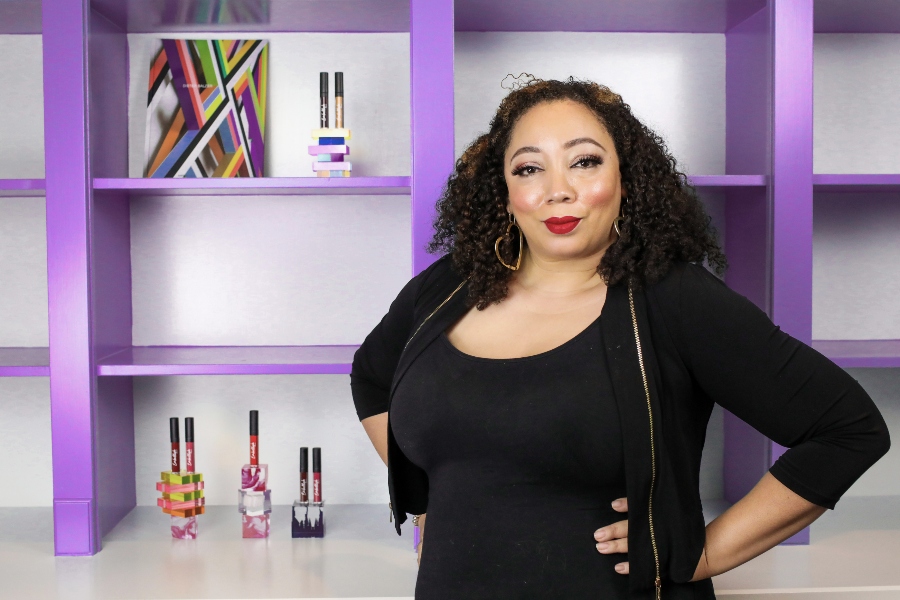
Marcia Williams is the owner of Embellish Beauty. / Courtesy
Marcia Williams, 44, spent years working as a make-up artist to celebrities like the Today Show’s Jill Martin, Dancing with the Stars sensation Peta Murgatroyd, and the various stars she encountered while doing make-up for QVC. As a freelance beauty consultant, her business was booming; but it also often prevented her from being able to spend time with her family.
“I wanted to launch a business that would allow me to be home with my kids; I really wanted to be hands-on and just experience being home with them,” she said. “But I also wanted to still be able to provide my services to women and to be able to bring those services to them, wherever they might be.”
So, in 2010, Williams pooled personal funds to launch her Embellish Beauty cosmetics line. She spent the next few years building her brand through her personal make-up services for bridal and TV. This year, she decided, she was finally ready to expand her online make-up product sales into brick and mortar stores.
A few months ago, Williams received the break of a lifetime when she was offered a deal with one of the most famous retail chain stores for her products to be sold at its New York City main branch store and in other locations across the country. But when retail stores were temporarily shut down amid the pandemic in March, that deal, as well as her make-up services for wedding bookings and QVC, were all put on indefinite hold.
It was a tough blow for Williams.
“I was thrilled about this retail partnership prospect, but I understood that during these times, bringing in new brands for in-store purchases just wasn’t going to happen,” she said. “I had to change up my strategy and find a way for customers to find out about my products.”
Williams shifted her focus to her website, adding new products and colors to her make-up line and even changing her product packaging with hopes of attracting new customers. (You can donate here or shop here to support Embellish Beauty).
“I’m not making anywhere close to what I used to make, and my husband is an entrepreneur too. So, it’s been rough for us. I’m just trying to be hopeful,” she said.
Amid the pandemic, Williams wants to pass on some of that hope through her products.
“These days, even when you might be wearing a mask, it’s like buying fancy lingerie you wear under your clothes. You still want to feel and look beautiful beneath the mask,” she said.
“I think for mental health, beauty is still important. I think it’s really critical that we stay in touch with ourselves and really devote some time to self-care.”


